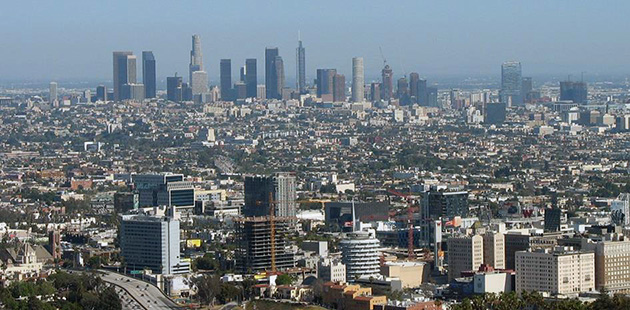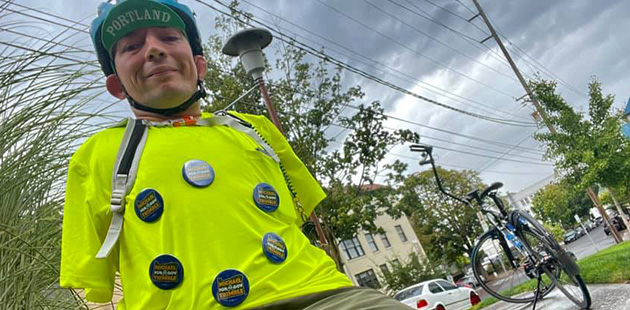Affordable Housing is Possible
Top photo by Tim Forkes
When the National Low Income Housing Coalition issued a report earlier this year revealing the U.S. has a shortage of 3.4 million affordable housing units, I was not surprised. I started my company, UMH Properties, more than 50 years ago to develop and manage affordable housing communities, and since 1968, UMH has grown from a handful of units to nearly 24,000 homes in 127 communities spread across eight states.
While I am very proud of the work we have done and the fine communities we have developed for tens of thousands of families, I know the lack of affordable housing has never been more acute than it is today. Demand for affordable housing, the report has shown, is increasing at a sprinter’s pace.
UMH has been able to accomplish affordability while being financially conservative and rewarding shareholders with solid returns. Our shares, reflecting our prudent stewardship and steady growth, have grown nearly 70 percent over the past year – more than double the return of the S&P 500 Index. Over the past two years, UMH shares are up over 67 percent, 15 percent better than the S&P.
Make no mistake: UMH is doing right by America – and its shareholders. And while I am proud of our history I am also excited about our future. My son Sam Landy, UMH’s President and Chief Executive, and I have the company poised for continued solid growth and will continue to work with federal, state, and local governments to bring about change in regulations to open the door to additional development of affordable housing.
Here’s our plan.
We plan to grow the number of new rental homes by 600-700 amid supply constraints. Without supply constraints, we would have added 800-900 homes to the 8,655 homes we currently rent. There is strong demand, as you may have guessed. Our rental inventory is 95 percent occupied. And why not? For about $800 a month in rent, we can transform a family’s lifestyle by getting them into a beautiful new, energy efficient home with a spacious backyard and a two-car garage.
UMH has experience in the difficulties involved in obtaining approvals to build new communities. Due to those difficulties, UMH recognized a better plan. The plan was to buy communities with low occupancy, invest in the infrastructure, fix the differed maintenance, and then add rental manufactured homes to fill the vacant sites. UMH had 3,700 vacant home sites obtained primarily by acquiring communities with substantial vacancies. UMH filled over 600 of those vacant sites this year. On top of the vacant sites, we have 1,800 vacant acres which can be developed into 7,300 sites upon which we can either sell homes or rent homes.
UMH will also grow through acquisition. We have and will continue to scout out communities to purchase. Often these purchases are of communities that have not been updated, so once UMH acquires the community we immediately update all the homes.
We are able to invest in community upgrades thanks to our prudent money management.
When I started this company after graduating from the U.S. Merchant Marine Academy in 1955 and Yale Law School in 1958, we sold mobile homes on rented plots of land at affordable prices. For thousands of families, it was the only way to grab hold of the American Dream of home ownership.
Roughly 10 years ago, we started buying prefab communities, upgrading them, and turning them into rentals. We then successfully led a Washington D.C. lobbying effort to get Fannie Mae to increase its commitment to rental homes. Now, as more expensive mortgages come due, UMH will be able to refinance them at lower, GSE-backed rates, lowering our cost of capital – and delivering greater profits to our shareholders.
There is still plenty of room for growth.
The country used to produce 250,000 manufactured homes a year. That was in the 1990s. Today, the total number of manufactured homes produced in the U.S. is down to 100,000. The decrease in production is mostly due to the Great Recession when mortgages on many homes, including manufactured homes, went into foreclosure, souring lenders on these loans. In other words, we have a lot of ground to make up.
Our decision to invest in manufactured housing all those years ago has proven to be wise. Affordable housing is possibly the most critical domestic issue facing our nation today. UMH is perfectly positioned to be an integral solution to this affordable housing crisis. In an age where environmental, social, and governance concerns are highly valued, UMH should become a preferred investment for institutional investors.
•••• •••• ••••• •••• ••••
ABOUT EUGENE W. LANDY
Eugene Landy has worked with his son, Sam, to build a thriving, young, and dynamic manufactured housing company. UMH’s Vice Presidents — Ana Chew, Chief Financial and Accounting Officer and Treasurer, Brett Taft, Chief Operating Officer, Craig Koster, General Counsel and Secretary, Regina Beasley, Ayal Dreifuss, Rental Division Chief, Christine Lindsey, Head of Sales, James Lykins, Head of Capital Markets, Nelli Madden, Head of Investor Relations, T.C. Sheppard, Head of Consumer Finance, Jeffrey Wolfe, Head of Operations, Jeffrey Yorick, Head of Engineering, and Daniel Landy and Robert Van Schuyver, have UMH poised for another 50 years of success in creating quality, compassionate, affordable housing.

Eugene Landy has worked with his son, Sam, to build a thriving, young, and dynamic manufactured housing company. UMH’s Vice Presidents — Ana Chew, Chief Financial and Accounting Officer and Treasurer, Brett Taft, Chief Operating Officer, Craig Koster, General Counsel and Secretary, Regina Beasley, Ayal Dreifuss, Rental Division Chief, Christine Lindsey, Head of Sales, James Lykins, Head of Capital Markets, Nelli Madden, Head of Investor Relations, T.C. Sheppard, Head of Consumer Finance, Jeffrey Wolfe, Head of Operations, Jeffrey Yorick, Head of Engineering, and Daniel Landy and Robert Van Schuyver, have UMH poised for another 50 years of success in creating quality, compassionate, affordable housing.


